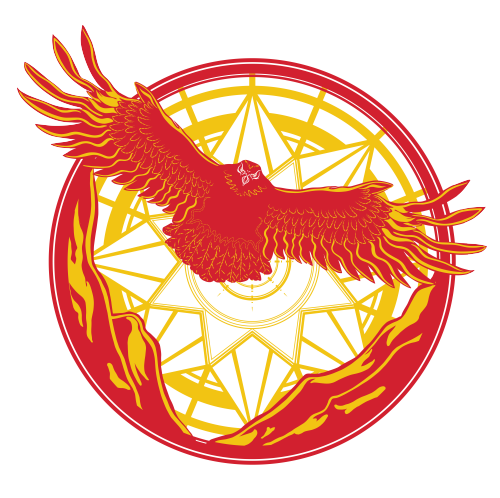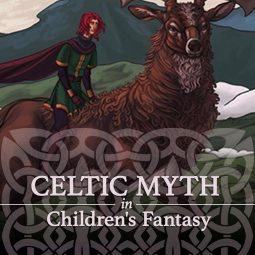INSTRUCTORS:
What does the term Celtic mean? How does the Arthur tradition relate to Celtic mythology? How has Celtic mythology been used in modern children’s literature?
The medieval literature of Ireland and Wales is thought to have saved for posterity the vestiges of what would have been ancient ‘Celtic’ mythology. Tales of heroes, otherworld voyages, transformation and magic have fascinated folklorists and antiquarians since the rediscovery of Celtic texts in the 19th century, and have inspired writers of fantasy literature from Victorian times to today.
This course will examine contemporary (post-World-War-II) fantasy works whose authors have adapted, revised and re-imagined the medieval mythological texts of Ireland and Wales. The course material is divided into two parts:
- we will first read and discuss selections from the original sources (Táin Bó Cúailnge, Mabinogion, etc.)
- we will then go on to explore the way modern fantasy authors have rewritten this material to address a child or young adult readership.
The course, therefore, serves as a mini-introduction to Celtic mythology, while the focus on children’s and young adult fantasy will allow us to discuss matters of power and ideology, as well as perceptions of Celtic identity in contemporary fiction. The fantasy works we will explore include some of the best, award-winning fantasy of the later 20th century, such as Alan Garner’s The Owl Service (1967, Carnegie Medal), Susan Cooper’s The Grey King (1976, Newbery Medal); and Jenny Nimmo’s The Snow Spider (1986, Tir na n-Og Award).
Note: This course has been retired from Signum University’s course rotation but is still available as an Anytime Audit.
Course Schedule
Week 1
Introduction to terms and theoretical debates (including, what does ‘Celtic’ mean anyway?)
Week 2
An overview of Celtic Mythology and the fantasy literature it has inspired
Week 3
The Irish sources (1): the Mythological cycle and the Ulster Cycle
Week 4
The Irish sources (2): the Fenian Cycle
Week 5
The Welsh sources (1): The Four Branches of the Mabinogi
Week 6
The Welsh sources (2): Arthurian Welsh sources, Taliesin and Myrddin
Week 7
Revisiting the ancient Irish deities
- Pat O’Shea, The Hounds of the Morrigan (1985)
- Kate Thompson, The New Policeman (2005)
Week 8
Rewriting the legends of Fionn mac Cumhaill
- Mary Tannen, The Wizard Children of Finn (1981)
- The Lost Legend of Finn (1982)
Week 9
Adapting the four branches of the Mabinogi (1)
- Alan Garner, The Owl Service (1967)
- Jenny Nimmo:
- The Snow Spider (1986)
- Emlyn’s Moon (1987)
- The Chestnut Soldier (1989)
Week 10
- Adapting the four branches of the Mabinogi (2)
- Lloyd Alexander:
- The Book of Three (1964)
- The Black Cauldron (1965)
- The Castle of Llyr (1966)
- Taran Wanderer(1967)
- The High King (1968)
Week 11
- Re-imagining the (Welsh) Arthurian legend
- Susan Cooper
- Over Sea, Under Stone (1965)
- The Dark is Rising (1973)
- Greenwitch (1974)
- The Grey King (1975)
- Silver on the Tree (1977)
Week 12
Conclusions: Myth, ideology and ‘Celticity’
Required Texts
Students who want to use hard copies of the Celtic texts (Irish and Welsh) can look for the first three translations listed here, but all Celtic texts needed for this class will be available in the class. Other translations are also acceptable (e.g., the Jones and Jones Mabinogion).
— Dr. Fimi
- Ancient Irish Tales translated by Tom Peete Cross and Clark Harris Slover
- Early Irish Myths and Sagas by Jeffrey Gantz
- The Mabinogion translated by Sioned Davies
- The Hounds of the Morrigan by Pat O’Shea
- The New Policeman by Kate Thompson
- The Wizard Children of Finn by Mary Tannen
- The Lost Legend of Finn by Mary Tannen
- The Owl Service by Alan Garner
- The Snow Spider Trilogy by Jenny Nimmo
- The Chronicles of Prydain by Lloyd Alexander
- The Dark is Rising Sequence by Susan Cooper
Course History
This course has been offered in the following semesters.
| Semester | Preceptor(s) |
|---|---|
| Summer 2020 | Dr. Maggie Parke & Sparrow Alden |
| Summer 2017 | Sparrow Alden |
| Spring 2014 | Dr. Sara Brown, Dr. Erin Aust |
Course Artwork
Course artwork adapted from an original illustration by Breana Melvin. Used with permission. All rights reserved.




